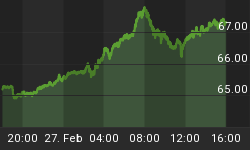With the Precious Metals markets heating up once again, and investors, both individual and professionals, considering how to invest appropriately, we thought it would be timely to discuss objectively some of your choices to increase leverage.
We realize investors have different views, different time horizons and different levels of risk tolerance and this affects our opinions and choices of investment vehicles to use in the search of ways to increase leverage.
While we at Precious Metals Warrants are biased as to our personal choice, we will discuss and define objectively the difference in call options, leaps and warrants so that readers can have the knowledge to make their own decisions as to which is the best for their situations.
We personally would not have a problem using any of the three choices of investment vehicles defined below if they meet our current investment objectives and time horizon.
Call Options
A call option is a contract that gives its owner the right, but not the obligation, to buy a specified number of shares at a predetermined price within a set period of time. Most call options have a life of 30, 60, 90 or 180 days. Call options place you in the position of being a trader looking for short term gains with high risk associated therewith. Investors have to be correct on the direction of the markets, your individual stock choice as well as the timing of your entry and exit strategy. This is not so easy to do for the average investor. Also, there are very few call options on stocks of mining companies and we are in a world where investors demand more and more choices.
There has been an incredible amount of information, education and marketing to get the investors attention for options in recent years. For those professionals who can manage risk and have a short term horizon this can be profitable and exciting. However, the industry statistics are the most investors, 80%-90% will lose their investment dollars.
Leaps
A leap which stands for Long Term Equity Anticipation Securities is also an option as defined above but these have a longer life of perhaps up to 2 years. Leaps will give you much more time but unfortunately there are very few leaps on the mining stocks.
Options and leaps are actually created or written by investors who write an option and keep the premium (the amount you paid) as income. The underlying company receives nothing.
Warrants
A warrant is a security giving the holder the right, but not the obligation to acquire the underlying security at a predetermined price and for a specified time. Sounds a lot like call options and leaps, right? Well, yes and no. Warrants are actually issued by the underlying company, normally in connection with a financing arrangement and are sometimes called a "kicker" or "equity kicker". Most warrants will never trade but are held by mutual funds or other private investors whom have provided the financing.
There are however, many warrants that do trade freely on either the U.S. Exchanges or the Canadian Exchanges. These warrants trade similar to their underlying stocks and will fluctuate up and down with the price of the stocks and can be purchased through your brokerage firm.
Warrants actually have a longer life than call options and most leaps which is why our subscribers are partial to them. Warrants are usually issued by the company for at least 2 years and sometimes up to 5 years. If an investor is more conservative and investment oriented as opposed to speculating, then warrants may make more sense. Timing seems to always be the issue doesn't it?
There are many warrants which do not expire until 2008 thru 2011 giving investors more time for this bull market to develop. Also, there are warrants trading on companies mining gold, silver, copper, zinc, cobalt, platinum, nickel and yes, even uranium.
Warrants can be divided into different time categories to reflect the individual investor's time horizon and level of risk and we call them short term, immediate term and long term as defined in the table below.
Conclusion
We are providing the table below which reflects our opinion as to the level of risk and reward to be derived from investing in each of our choices. Call options, leaps and warrants are all risky but provide investors incredible leverage potential. Remember, if the underlying security does not exceed the exercise price by the expiration date, all of these investment vehicles become worthless. Investors today have many choices into which to invest and should do so only after consulting with their investment advisor.
| Investment Vehicle: | Risk | Reward | ||
| Call Options | High | High | ||
| Leaps | Moderate | High | ||
| Warrants: | ||||
| Short Term (Less than 1 yr before expiration) | High | High | ||
| Intermediate Term (1 year to 2 years before expiration) | Moderate | High | ||
| Long Term (More than 2 years before expiration) | Minimal | High | ||















